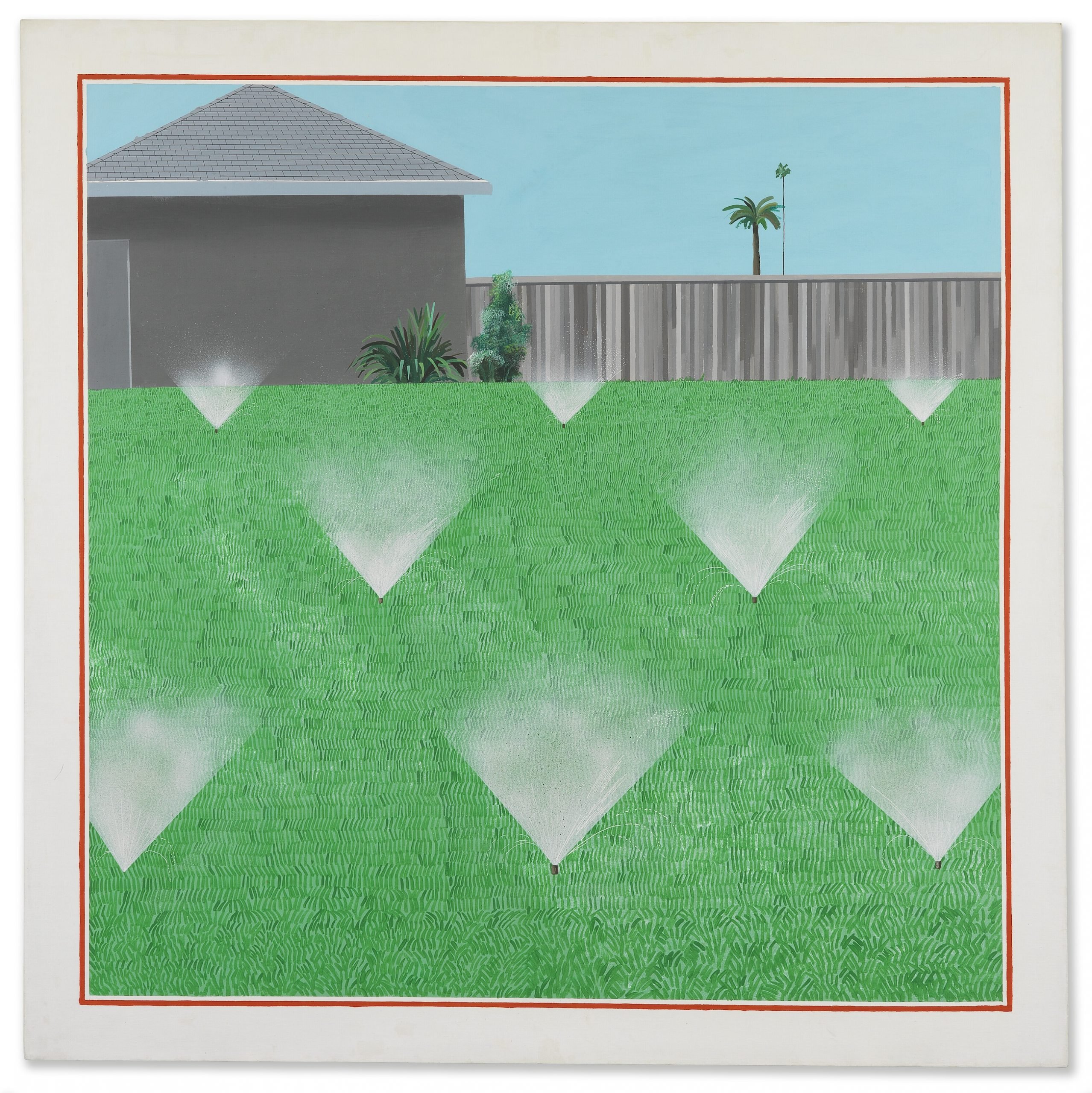
When television writer and producer Norman Lear died at age 101 in December 2023, he was remembered as having “changed the face of TV” with hit shows like All in the Family, Sanford and Son, The Jeffersons and Good Times, which “brought the sitcom into the real world” by looking frankly at social issues that were typically ignored in such shows.
Christie’s will sell the collection of Lear and his wife Lyn Davis Lear across its marquee New York 20th-century art sale on May 16 as well as its Postwar and Contemporary day sale and other auctions. The collection is estimated to bring in excess of $50 million.
“Norman was truly one-of-a-kind—the shows he created effectively transformed broadcast television forever,” said Lyn Davis Lear. “Addressing issues of classism, racism, and gender equality, his groundbreaking programs from 50 years ago remain as relevant today as ever.
Norman Lear. Courtesy Christie’s.
“Norman’s collection of art brilliantly reflects his vivacious and honest nature,” she added.
The lion’s share of the presale estimate is made up by one work, David Hockney’s A Lawn Being Sprinked (1967), estimated at up to $35 million. The highly stylized work shows triangles of water spraying from a bright green lawn, with a nondescript structure and a fence standing in the distance before a clear blue sky. The artist’s record high was achieved at Christie’s New York in 2018, when his 1972 canvas Portrait of an Artist (Pool with Two Figures) fetched $90.3 million against a $70 to $100 million estimate to become the most expensive work by a living artist.
Ed Ruscha, Truth (1973). Courtesy Christie’s.
The other priciest lots in the sale similarly come from market and art historical fixtures. Ed Ruscha’s Truth (1973), bearing a high estimate of $10 million, shows the titular word in orange and yellow against a blank, abstract background. “The fiery word painting by the inimitable Ed Ruscha emblazoned with the word ‘TRUTH’ is particularly meaningful, uniquely capturing all that Norman stood for,” said Lyn Davis Lear.
Robert Rauschenberg, Rodeo Palace (Spread) (1975-76). Courtesy Christie’s.
Willem de Kooning’s abstract canvas Man in Wainscott (1969), in a light palette dominated by whites, yellows, and pinks, is tagged at up to $6 million, while Robert Rauschenberg’s 1975–76 assemblage Rodeo Palace (Spread) is expected to bring as much as $5 million. The work combines his trademark silkscreened images along with three doors that open to reveal yet more imagery. Ellsworth Kelly’s abstract Blue Pale Grey (1960) is estimated to sell for between $2.5 and $3.5 million. Works by Joseph Cornell and Roy Lichtenstein are also included.
“The art that Norman and Lyn collected together is, like his era-defining shows, marked as much by the exploration of ideas as by an exquisite sense of craft, from Hockney’s mesmerizing A Lawn Being Sprinkled, which achieved the highest price for any Hockney when it was acquired in 1978, to Rauschenberg’s Rodeo Palace, the artist’s most intricate and absorbing spread painting,” said Max Carter, Christie’s vice chairman for 20th- and 21st-century art.
Lear was as concerned with social issues off-screen as he was in his on-screen productions; in 1981 he founded the civic organization People for the American Way to counter the right-wing religious activism of the Moral Majority. In 2001, he bought an $8.1 million copy of the Declaration of Independence and sent it on a national tour of libraries, museums, and stadiums nationwide. Inspired by that action, the nonpartisan voter registration project Declare Yourself was created in 2004, registering nearly four million new voters.
“Norman was a dedicated activist,” said Lyn Davis Lear. “He worked tirelessly in the pursuit of creating a fair and just democracy for all and the impact of his lifelong advocacy continues to change the world.”